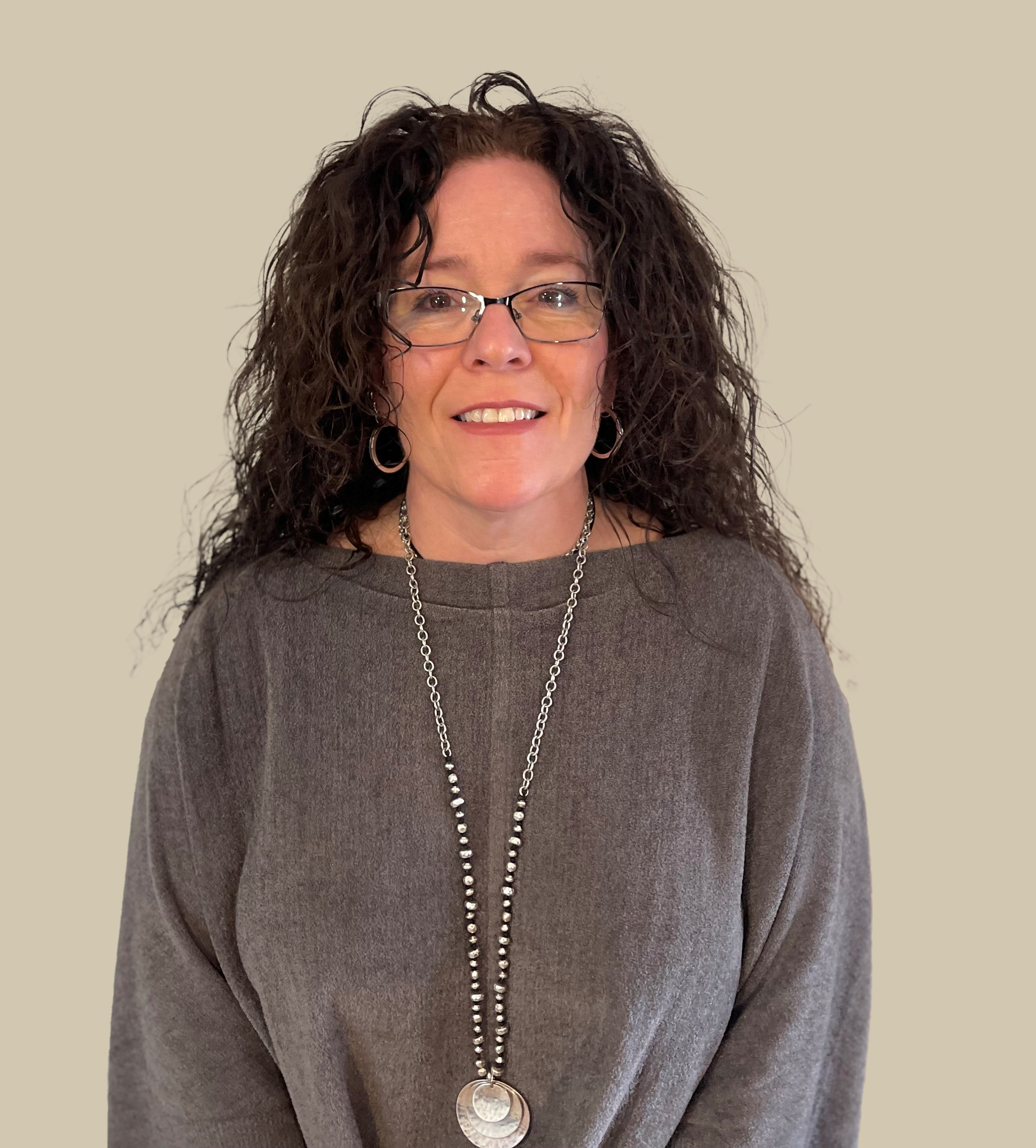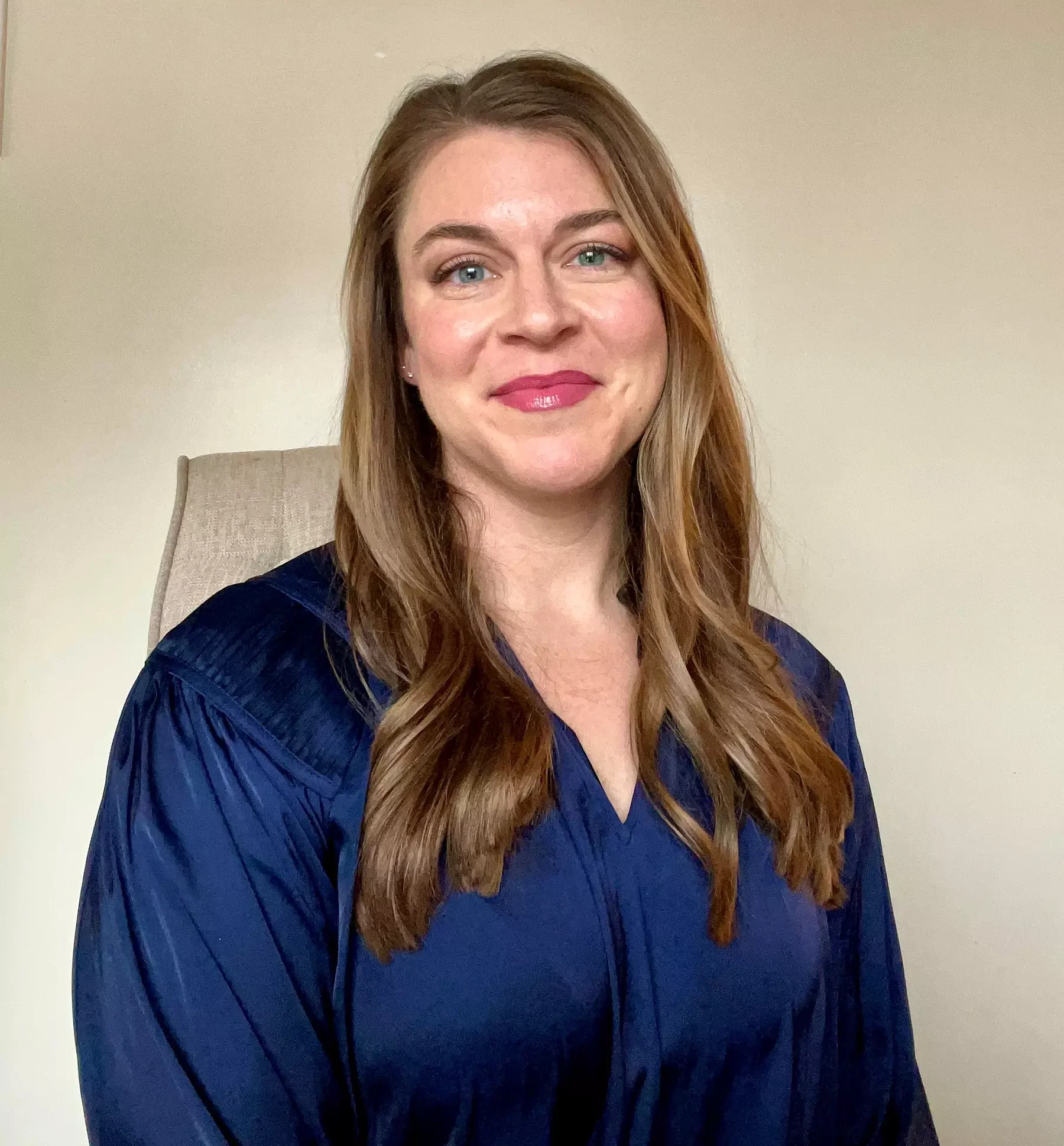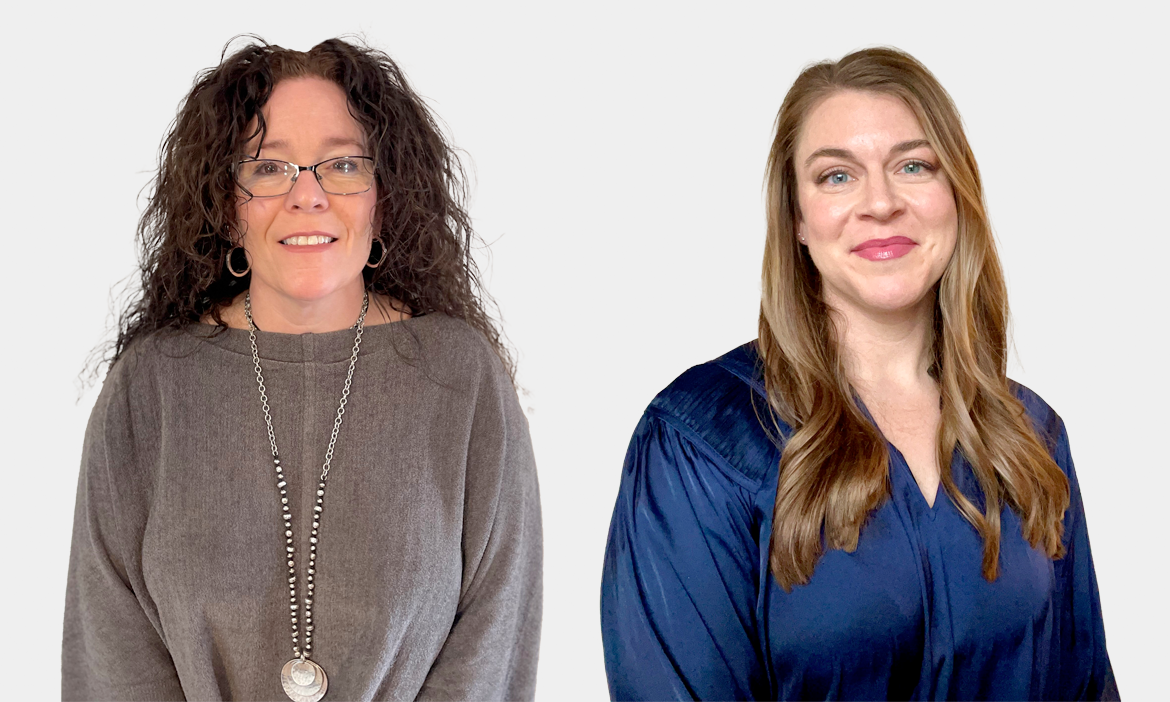“Every member deserves to have us understand their situation.”
That thought guides every outreach that Case Manager Amy Brown makes to those enrolled in BlueCare Tennessee, a BlueCross BlueShield of Tennessee subsidiary serving TennCare members.

Amy has been a nurse for 12 years and a BlueCare case manager since 2020. She’s also used her nursing skills with the Department of Labor and a hospital’s cardiology, pulmonary, and renal care units.
“Before you can move a member toward managing a health condition, you have to listen in a way that lets them know you’re meeting them where they are,” Amy says.
Amy’s commitment to listening made all the difference for an adult member with an intellectual disability, and for his caregiver, as they sought help to manage the member’s diabetes.
The member’s reading level was low, Amy learned. And he previously resisted changes to his diet that could lower his high blood sugar levels. Those factors prompted Amy to make her initial outreach to the member’s caregiver.
That proved to be an invaluable first step. As Amy discussed the member’s medications, she realized the caregiver was doing her best. But the caregiver wasn’t giving the member his diabetes medications according to instructions.
“She was very appreciative [after] I explained how they should be taken and relieved to be able to administer them properly,” Amy says.
An added resource
Amy then talked with the caregiver about how diabetes can negatively impact overall health and the need for a healthy diet. Through this conversation, Amy gained insight into the member’s daily activities and eating habits.
“He didn’t have energy to do many things he enjoyed,” Amy says.
With this information, Amy knew the member would benefit from working with an additional resource. She called on Melissa Perry, a registered dietitian at BlueCross since 2020 with certification as a diabetes educator.
“Diabetes can be overwhelming,” Melissa says. “[After getting details from Amy] I felt it was best for him to start with small changes.”
A member takes the wheel
Melissa reached out first to the caregiver who needed help planning meals for someone with diabetes.

When Melissa connected with the member directly, she gave him some ideas for lifestyle changes that were easy to do.
“My goal is to put members in the driver’s seat,” Melissa says.
This member loved soft drinks. Instead of telling him to cut them out entirely, Melissa asked if he could switch to water or zero-sugar drinks with meals. During their next call, the member admitted he’d done that some, but not all of the time.
“I congratulated him anyway,” Melissa says. “It was a big deal that he’d tried it.”
She talked with him about his low energy levels and how food choices could help. Knowing he needed something he could have in front of him to refer to easily, she gave him a guide shaped like a dinner plate and food lists to help him make better choices.
Finding success, showing appreciation
Within a few weeks, the member’s blood sugar had dropped significantly.
“I then helped him connect the dots to see how these changes were making him feel better,” Melissa says.
During another check-in call with the member, Melissa learned he was still using the food lists, displayed proudly on his refrigerator. And his blood glucose readings remained much lower than when they first contacted him.
“He needed that control and to be part of the decision-making process,” Melissa says.
“Being a part of a member’s story, when they realize you are a friend, that makes you feel really good.”
In a follow-up survey about his care, the member expressed thanks, describing those who helped him as “awesome.”
“I have been through so much. It is sometimes overwhelming,” the member wrote. “They always help me.”


 Marie joined the BlueCross BlueShield of Tennessee corporate communications team in 2012. A Florida native, she has more than 25 years of experience in public relations, community relations, speech writing and special event planning.
Marie joined the BlueCross BlueShield of Tennessee corporate communications team in 2012. A Florida native, she has more than 25 years of experience in public relations, community relations, speech writing and special event planning.